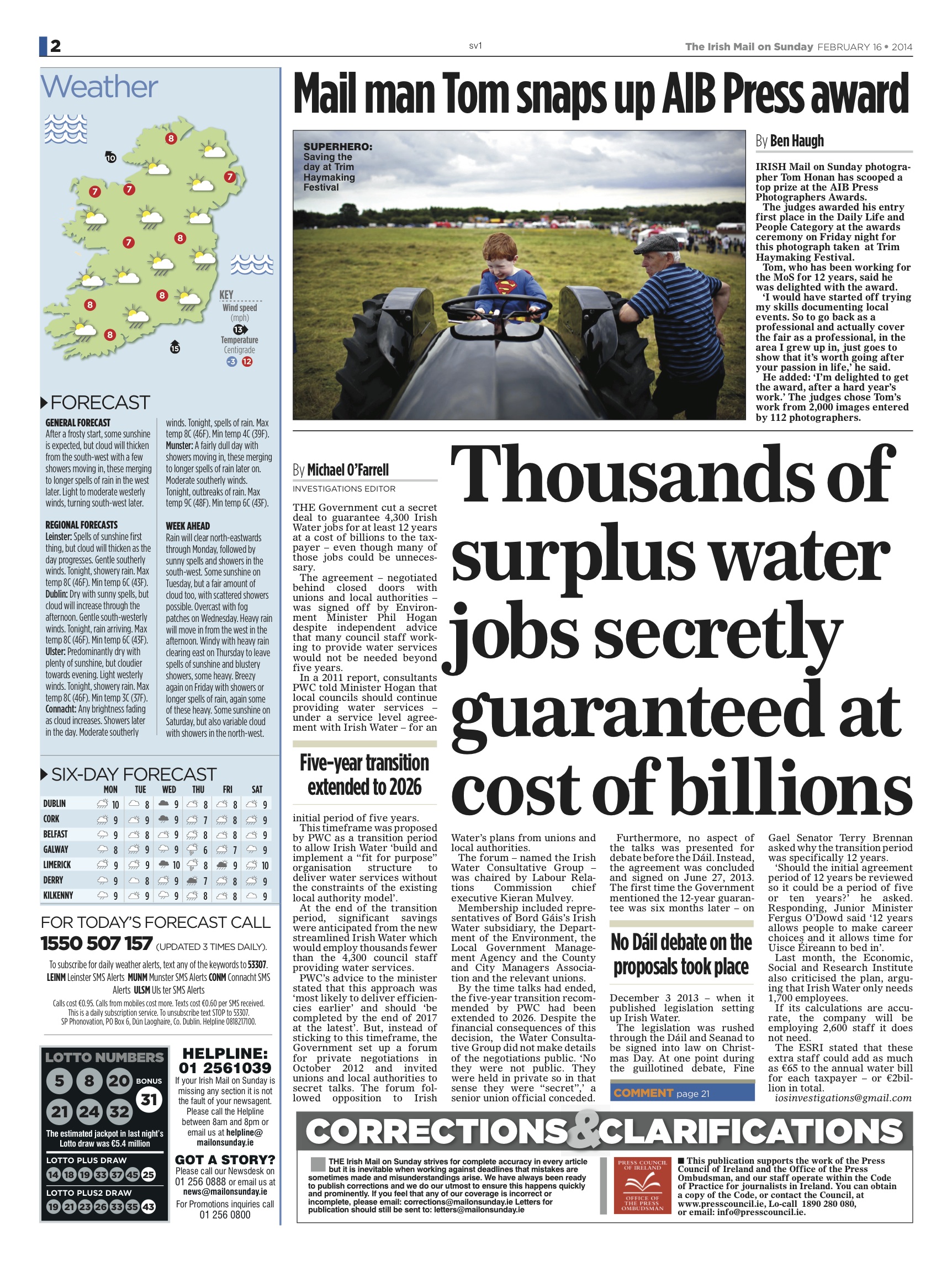By: Michael O’Farrell
Investigations Editor
THE Government cut a secret deal to guarantee 4,300 Irish Water jobs for at least 12 years at a cost of billions to the taxpayer – even though many of those jobs could be unnecessary.
The agreement – negotiated behind closed doors with unions and local authorities – was signed off by Environment Minister Phil Hogan despite independent advice that many council staff working to provide water services would not be needed beyond five years.
In a 2011 report, consultants PWC told Minister Hogan that local councils should continue providing water services – under a service level agreement with Irish Water – for an initial period of five years.

This timeframe was proposed by PWC as a transition period to allow Irish Water ‘build and implement a “fit for purpose” organisation structure to deliver water services without the constraints of the existing local authority model’.
At the end of the transition period, significant savings were anticipated from the new streamlined Irish Water which would employ thousands fewer than the 4,300 council staff providing water services.
PWC’s advice to the minister stated that this approach was ‘most likely to deliver efficiencies earlier’ and should ‘be completed by the end of 2017 at the latest’. But, instead of sticking to this timeframe, the Government set up a forum for private negotiations in October 2012 and invited unions and local authorities to secret talks. The forum followed opposition to Irish Water’s plans from unions and local authorities.
The forum – named the Irish Water Consultative Group – was chaired by Labour Relations Commission chief executive Kieran Mulvey.
Membership included representatives of Bord Gáis’s Irish Water subsidiary, the Department of the Environment, the Local Government Management Agency and the County and City Managers Association and the relevant unions. By the time talks had ended, the five-year transition recommended by PWC had been extended to 2026. Despite the financial consequences of this decision, the Water Consultative Group did not make details of the negotiations public. ‘No they were not public. They were held in private so in that sense they were “secret”,’ a senior union official conceded.
Furthermore, no aspect of the talks was presented for debate before the Dáil. Instead, the agreement was concluded and signed on June 27, 2013. The first time the Government mentioned the 12-year guarantee was six months later – on December 3 2013 – when it published legislation setting up Irish Water.
The legislation was rushed through the Dáil and Seanad to be signed into law on Christmas Day. At one point during the guillotined debate, Fine COMMENT page 21 Gael Senator Terry Brennan asked why the transition period was specifically 12 years.
‘Should the initial agreement period of 12 years be reviewed so it could be a period of five or ten years?’ he asked. Responding, Junior Minister Fergus O’Dowd said ’12 years allows people to make career choices and it allows time for Uisce Éireann to bed in’.
Last month, the Economic, Social and Research Institute also criticised the plan, arguing that Irish Water only needs 1,700 employees.
If its calculations are accurate, the company will be employing 2,600 staff it does not need.
The ESRI stated that these extra staff could add as much as €65 to the annual water bill for each taxpayer – or €2billion in total.
